últimas noticias
-
¡La raqueta Double Fish Defense Pickle Ball obtiene la aprobación de la USAPA!
-
Pelota de tenis de mesa hueca con grabado artesanal de pez doble: un puente cultural que conecta a China y el mundo
-
Los productos de tenis de mesa de Piscis fueron testigos de la primera medalla de oro en tenis de mesa de dobles mixtos de Wang Chuqin/Sun Yingsha en los Juegos Olímpicos de París.
Categorías de Producto
Caliente Productos
-
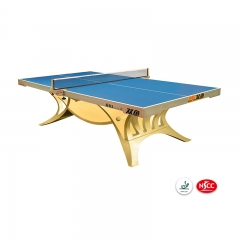
Tabla de Tenis de Mesa Premium para Campeonatos Volant King
Esta mesa de tenis de mesa premium es apta para campeonatos. Aprobado por la ITTF y NSCC. Tren de rodaje de plata + luz azul
Lee mas -
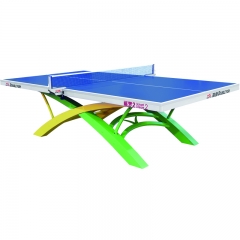
Mesa oficial de tenis de mesa para el torneo Volant Dream 2
Mesa de ping pong oficial Volant Dream 2 para competiciones internacionales diseñadas por Double Fish Sports.
Lee mas -
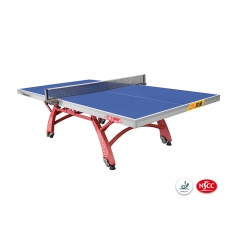
Mesa Oficial de Tenis de Mesa para Competitons XIANGYU 328
Tabla plegable doble superior del tenis de vector, diseño compacto El nuevo sistema de plegado minimiza el riesgo de lesiones durante el almacenamiento y el movimiento de la mesa. Tabla de tenis de mesa aprobada por la ITTF.
Lee mas -
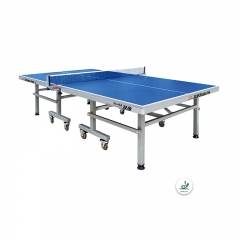
Mesa oficial de tenis de mesa duradera para el World Tour 99-45B
La ITTF aprobó una mesa de ping pong duradera oficial para un torneo internacional. Espesor del tablero de mesa: 25 mm CALIDAD DEL TORNEO - Esta mesa de nivel profesional está diseñada para el más alto nivel de competencia. PERFECT FOR FAMILIES: ofrece juegos premium para todas las edades. Vaya cabeza a cabeza o pliegue para practicar individualmente. Los soportes de acero de calibre grueso de 2 pulgadas cumplen con los desafíos más difíciles. Un gran centro de mesa para su sala de juegos, estudio o gimnasio. FÁCIL ENSAMBLAJE: comience a jugar en minutos con un simple ensamblaje. La red de alta calidad está equipada con abrazaderas de bloqueo que se unen fácilmente.
Lee mas -
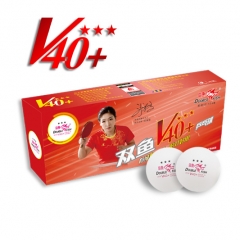
Mejor calidad doble pescado V40 + Volant 3 estrellas pelota de tenis
Doble pescado V40 + Volant 3 estrellas bola de tenis de mesa es confirmar a los últimos estándares técnicos de la ITTF T3.
Lee mas -
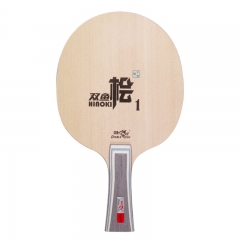
Double Fish QIJI Lámina para tenis de mesa
Doble pescado QIJI todo terreno de tenis de mesa, que es la mejor tabla de tenis de mesa de tenis de mesa, & nbsp; Perfecto para el jugador allround tradicional
Lee mas
El espíritu de trabajo duro 丨La industria aprende de Daqing——La fábrica de tenis de mesa Chenggong se mudó a Paolougang
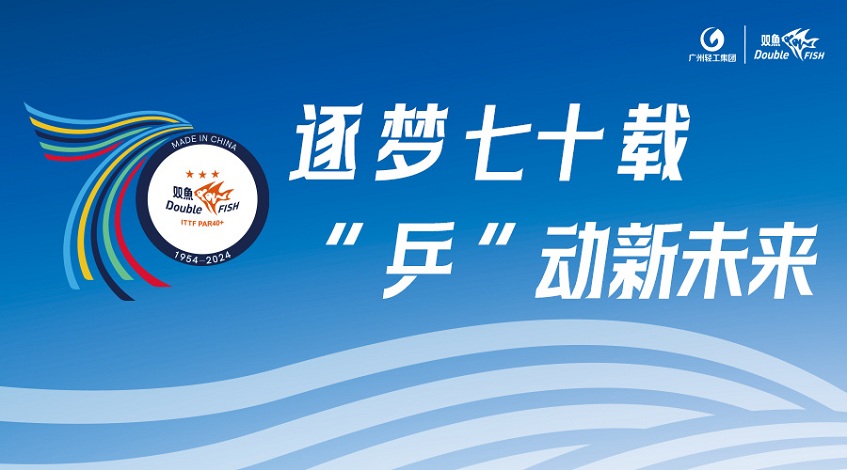
Durante los tres años de dificultades económicas de principios de los años 1960, el campo petrolífero de Daqing en la cuenca de Songliao en el noreste, representado por Wang Jinxi, llevó adelante el espíritu revolucionario de "no temer las dificultades ni el sacrificio", superó el bloqueo extranjero y construyó una Un gran yacimiento petrolero nacional de primera clase y líder mundial en menos de tres años, quitándose el sombrero de "país pobre en petróleo" impuesto a China por los países occidentales y haciendo una contribución significativa al desarrollo de la construcción socialista.
En 1964, el Comité Central del Partido Comunista de China pidió al frente industrial nacional que "aprendiera de Daqing en la industria". El movimiento de aprendizaje de Daqing en la industria tenía como objetivo principal aprender del espíritu de autosuficiencia y trabajo duro de Daqing, a fin de promover el desarrollo de empresas industriales y mineras y la construcción socialista en todo el país.
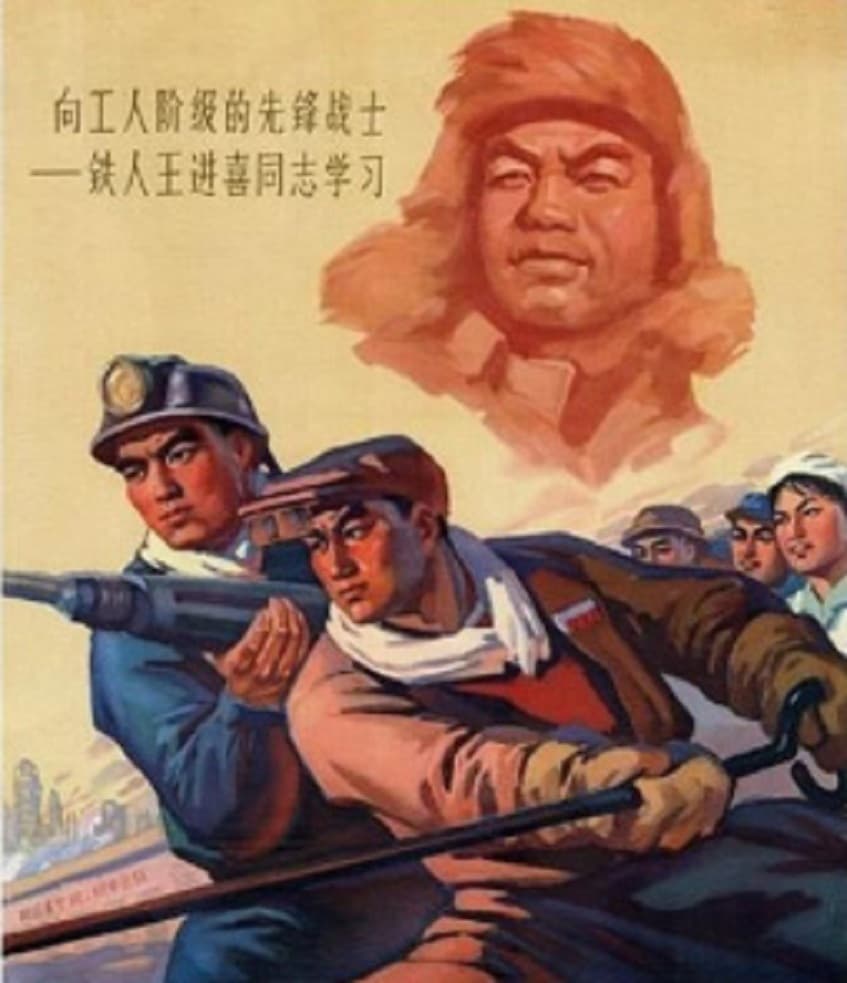
Cartel propagandístico del aprendizaje de Daqing en la industria en la década de 1960.
Después de varios años de arduo trabajo, la fábrica de tenis de mesa Chenggong en ese momento tenía una base firme y la producción se había desarrollado. Sólo en 1963, esta pequeña fábrica con sólo unas 100 personas había pagado más de 130.000 yuanes en ganancias al Estado.
En 1964, el superior asignó 240.000 yuanes para inversiones de capital en la construcción y decidió trasladar la fábrica de los suburbios del este de Boluo Temple a los suburbios del sur de Paolougang①. El estado de ánimo de los trabajadores también cambió de los altibajos originales a uno lleno de expectativas y orgullo. Están a punto de mudarse al nuevo edificio de la fábrica ubicado en el centro industrial de la ciudad, Industrial Avenue.
① Nanjiao Paolougang está cerca del número 28 de la carretera Yanzigang, distrito de Haizhu. El terreno al que se mudó Chenggong Table Tennis Factory era originalmente una fábrica de cerámica, que ya contaba con instalaciones básicas, lo que brindaba conveniencia para expandir la producción.
En ese momento, alguien sugirió aprovechar esta oportunidad para mejorar enormemente el aspecto de la fábrica. "Esta es una buena oportunidad. Puedes pedir más cosas y hacer que la fábrica luzca bien. Si pierdes esta oportunidad, nunca la volverás a encontrar". Algunas personas en la fábrica estaban ansiosas por escuchar esto y dijeron: "Hemos trabajado duro durante varios años y finalmente lo logramos. ¡Esta vez tenemos que mudarnos a una nueva fábrica y lucir bien!". En ese momento, la rama del partido se dio cuenta de que la discusión estaba sesgada. ¿Qué es "verse bien"? ¿Se trata de adherirse al principio de autosuficiencia y trabajo duro y hacer que la fábrica parezca una empresa socialista, o de aprovechar la oportunidad para "hacer una fortuna" con el Estado y hacer que la fábrica parezca más extranjera y más grande?
Late at night, Li Chao, then the party branch secretary, repeatedly thought: Is our rapid development contrary to Chairman Mao's teaching of "always remain modest, cautious, not arrogant, not impatient, and continue to maintain the style of hard work"? He began to worry that if this development continued, would it lead everyone astray and forget the hard-core spirit of the successful table tennis factory - "self-reliance and hard work", the tenacity that can persist even in the most difficult times.
Secretary Li Chao and the leadership of Chenggong Factory clearly realized that even after the material conditions were significantly improved, maintaining and promoting the spirit of hard work was still the key to the stable development of the enterprise. Guided by this spirit, Chenggong Factory, together with workers from all over the city, launched the "Learn from Daqing" activity, taking this as an opportunity to stimulate the enthusiasm for work and the motivation for self-improvement of all factory staff.
One night, six or seven people including veteran workers Yang Bing, Li Tian, party branch secretary Li Chao, and deputy factory director Huang Cheng sat under the peach tree transplanted from Polo Temple to learn from Chairman Mao's great call to the whole country to "learn from Daqing in industry." Everyone was talking about how hardship and contribution they had with the Daqing workers:
"In terms of hardship, the Daqing workers had the sky above their heads, the grasslands under their feet, and the ice and snow. It was much harder than when we were in the early days of building the factory in Boluo Temple and were 'making a revolution with three tools'."
"In terms of contribution, the Daqing workers drilled one oil well after another for the country, which helped our country get rid of the crutch of relying on kerosene to survive, and blazed a path of independence, self-reliance, and self-reliance to develop our country's oil industry. Their contribution was much greater than ours."
"However, the Daqing workers were not proud of their achievements and always maintained the revolutionary tradition of self-reliance and hard work. When we moved from Boluo Temple to the current place, the country gave us some investment to develop production. Some people said, 'After years of hard work, we finally made it. Now that we have moved the factory, we don't have to be pioneers anymore?...
The more we compared, the brighter our hearts became. The old workers said, "The longer we stretch our hands, the shorter our ambitions become. We must use the energy of 'making a revolution with three tools' to move the factory. "Some old workers said earnestly: "If we lose the fine tradition of hard work and self-reliance, we will go astray!" ②
② This paragraph was originally published in the Guangzhou Daily on April 23, 1975.
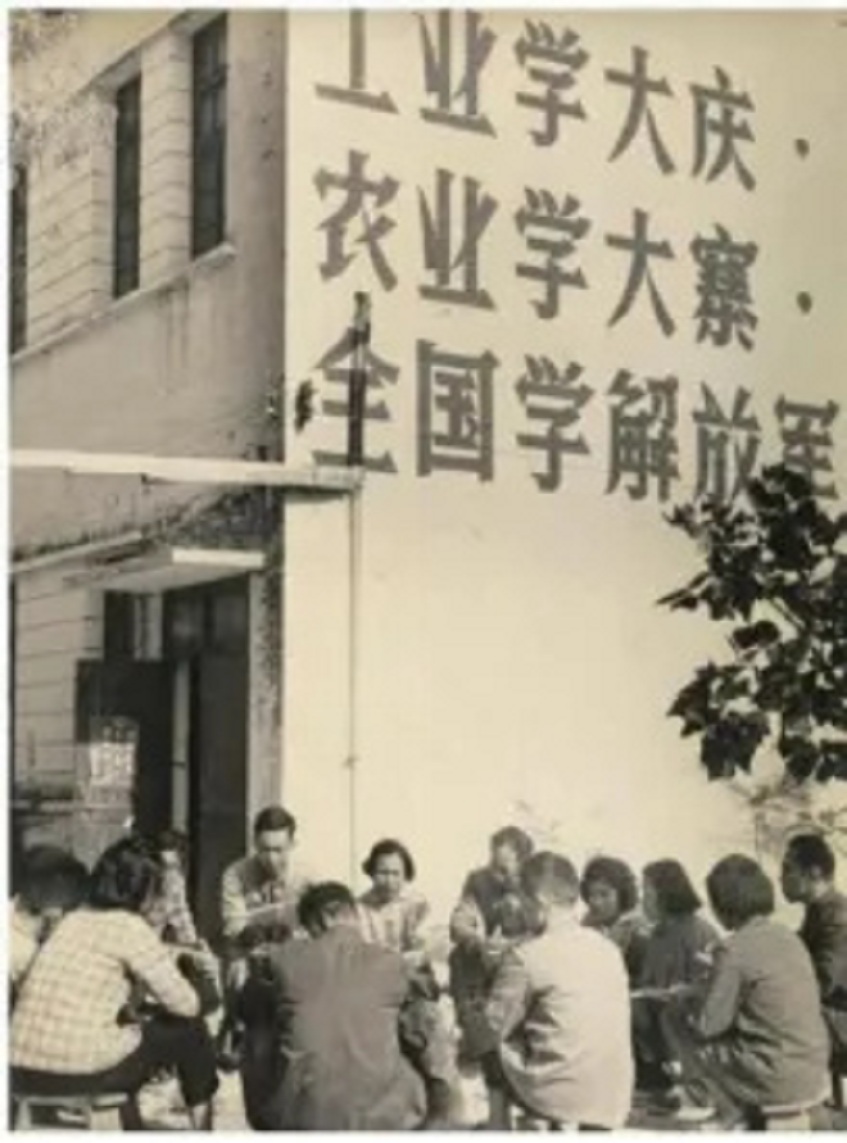
The Party Branch of Chenggong Table Tennis Factory carried out the Daqing Learning Activity
The vigorous fighting spirit of the old workers inspired the employees in the factory and educated those who wanted to "make a fortune". Everyone took out the fighting spirit of the year when they started their business, while insisting on production, relocating and building the factory. During the relocation process, Chenggong Factory did not stop production for a day.
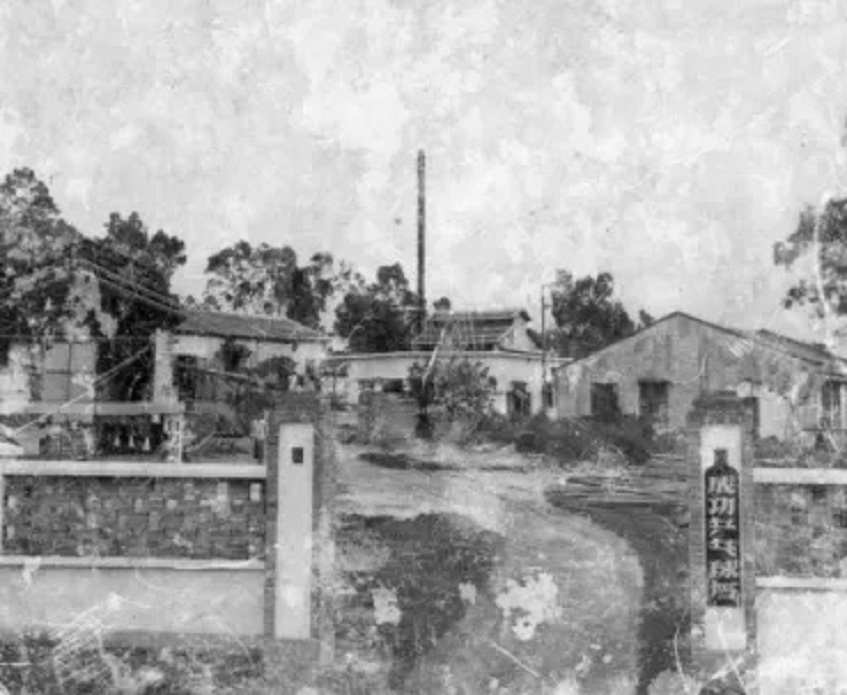
Chenggong Table Tennis Factory relocated to Yanzigang, Haizhu District
Paolougang next to Industrial Avenue used to have only a shabby small ceramic factory here, with a deserted environment and weeds all around. However, through the joint efforts of Chenggong Factory people, this scene has completely changed. Employees not only repaired roads and leveled land after work, but also built A new factory building of more than 2,000 square meters was built. Significant transportation costs were saved, and the relocation was completed during the Spring Festival holiday to ensure that production was not affected.
At that time, the production of table tennis balls required a lot of water resources. Faced with the high cost of tap water and unstable supply, the factory leaders and employees found an idea that was both cost-saving and environmentally friendly. Yang Bing and several other experienced old workers proposed to build a 400-square-meter return water pool and water tower in a low-lying area of the factory, so that the used water could be reused through cooling and filtration. The initial estimate was that it would cost 13,000 yuan, but the successful factory people who insisted on "self-reliance and hard work" believed that this cost could be lowered.
One day, old worker Yang Bing asked the factory leader: "Has the return water pool been contracted to the infrastructure unit?"
"Not yet. The construction team has been estimated to cost more than 10,000 yuan."
"We volunteered to do it ourselves! "
This proposal made Secretary Li Chao think for a long time. He thought, "Under difficult conditions, it is not easy to adhere to the principle of self-reliance and hard work, and to start a business relying on the "three treasures"; now that the family business is big and the conditions are good, it is key to continue to maintain that entrepreneurial spirit. So the next day at the staff meeting, Li Chao actively supported the initiative put forward by the old workers: carry forward the tradition of hard work of "three tools to make revolution" and build the return water pool by ourselves!
En el frío invierno, los cuadros y trabajadores de la fábrica Chenggong, incluido el secretario del Partido, Li Chao, el subdirector de la fábrica, Huang Cheng, y los trabajadores, participaron conjuntamente en esta ardua tarea. Se quedaron descalzos en el agua fangosa, sin miedo al frío intenso, e insistieron en trabajar una hora todos los días después del trabajo. Cavar tierra, machacar hormigón y construir paredes de piscinas. Después de más de tres meses de arduo trabajo, no sólo construyeron con éxito la piscina de agua de retorno y la torre de agua, sino que también ahorraron al país más de 4.800 yuanes en inversión en infraestructura. De esta manera, después de tres meses de trabajo voluntario después del trabajo, se construyó una piscina de retorno de 20 metros de largo, 2 metros de ancho y 2 metros de profundidad, como una pequeña piscina, a un costo de sólo más de 6.000 yuanes.
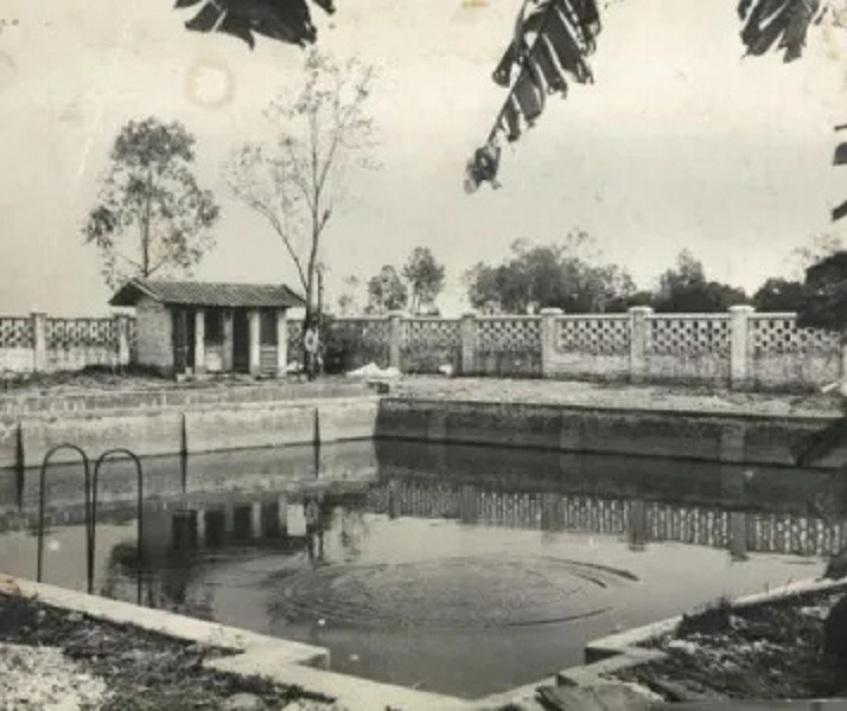
Piscina de retorno de la fábrica de tenis de mesa Chenggong
Poco después de la reubicación, con el fin de ampliar la producción de pelotas de tenis de mesa para satisfacer la creciente demanda del mercado, el estado decidió invertir en la fábrica Chenggong y agregar la maquinaria y los edificios necesarios. Sin embargo, ante esta inversión extranjera, los empleados y la dirección de la fábrica Chenggong mostraron una actitud inusualmente cautelosa. En una reunión de la rama del partido, discutieron cómo utilizar razonablemente la inversión estatal. Durante la discusión, los cuadros y trabajadores de la fábrica Chenggong mostraron una notable autodisciplina. Revisaron cuidadosamente uno por uno el plan de inversiones estatal, esforzándose por racionalizar todos los gastos y eliminando resueltamente aquellos proyectos que podrían ser completados por la propia fábrica. Al final, a excepción del vapor, los 16 restantes de los 17 equipos especiales que originalmente se planeaba actualizar fueron fabricados por ellos mismos. La cantidad de financiación estatal solicitada por Chenggong Factory se redujo de los 240.000 yuanes originales a 167.500 yuanes. Mediante un cálculo cuidadoso, le ahorró al país 80.000 yuanes en inversiones.
Una serie de acontecimientos importantes durante el proceso de reubicación demostraron la determinación de Chenggong Factory de adherirse y promover el espíritu de diligencia y ahorro. Como dijeron algunos trabajadores: "El espíritu de 'autosuficiencia y trabajo duro' en Polo Temple ha florecido y dado frutos en Paolougang".























 +8620-84319554
+8620-84319554 +8620-84328948
+8620-84328948
 +86 13829778212
+86 13829778212